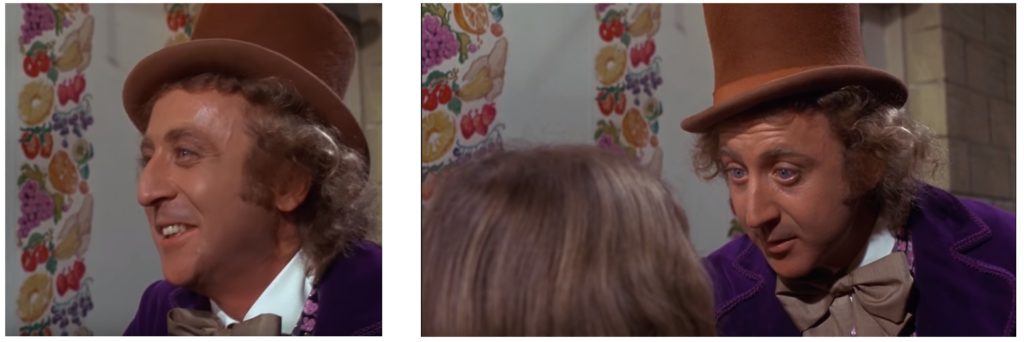We are the music-makers,
And we are the dreamers of dreams,
Wandering by lone sea-breakers,
And sitting by desolate streams.
World-losers and world-forsakers,
Upon whom the pale moon gleams;
Yet we are the movers and shakers,
Of the world forever, it seems.
With wonderful deathless dittiesWe build up the world’s great cities,And out of a fabulous storyWe fashion an empire’s glory:One man with a dream, at pleasure,Shall go forth and conquer a crown;And three with a new song’s measureCan trample an empire down.
We, in the ages lyingIn the buried past of the earth,Built Nineveh with our sighing,And Babel itself with our mirth;And o’erthrew them with prophesyingTo the old of the new world’s worth;For each age is a dream that is dying,Or one that is coming to birth.
Veruca was thumbing her nose at the notion of creation while literally partaking in the fruits aside their creator. Wonka is chastising her because every element of her world was conjured in the minds of women and men and then made real in their hands. Everything Veruca covets and needs to survive are snoozeberries. Wonka is incensed by her disrespect, but his reaction is part of why Wonka is such a great, enduring character. He chooses not to correct or ridicule the girl. Instead, he makes certain he has her attention. Then, he directs it to information she is not processing about the nature of her position. She is a parasite. She is invited to become more than that, but the seriousness in his voice and face imply every mosquito that causes too much an itch gets swatted.
Wonka’s manners are example to how powerful, but decent, people should act. Versus the less powerful, they should have more restraint and less aggressiveness, rather than vice-versa. They should feel compassion for and even seek to help their enemies, where this is practical. Wonka is rich, powerful, smart, witty, and learned. He has every advantage over those around him. Yet, we never see him insult anyone. He doesn’t brag. He never bullies anyone or forces anyone to do anything. He takes their jabs in stride, taking care not to engage, when possible. He shows some passive-aggressiveness, but this is after someone else has invited mischief upon themselves.


